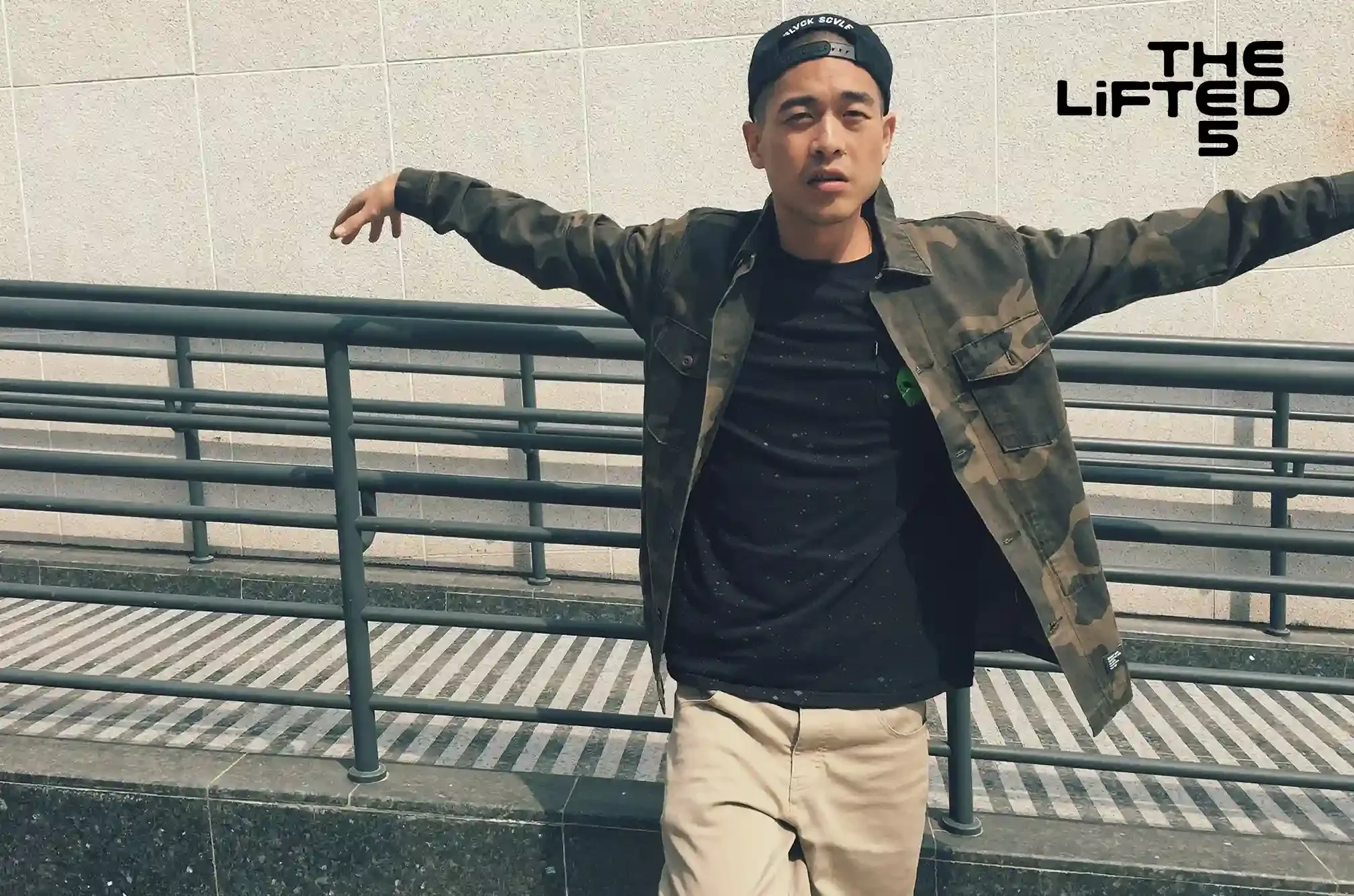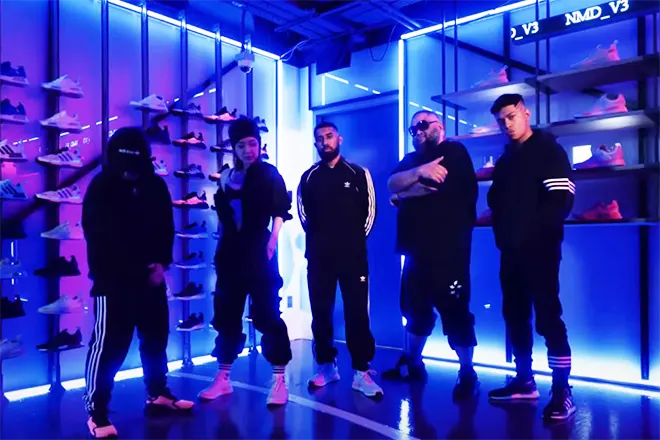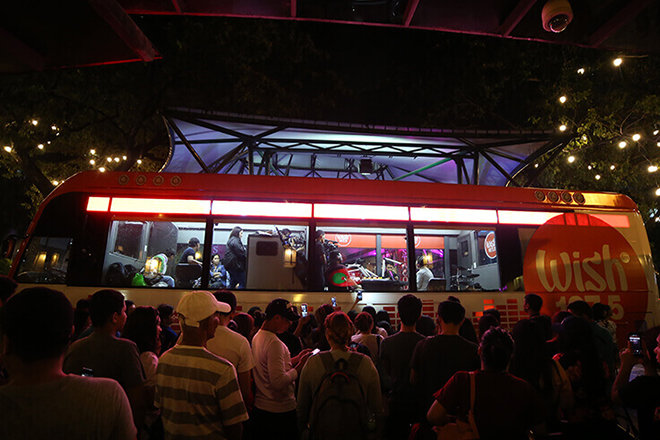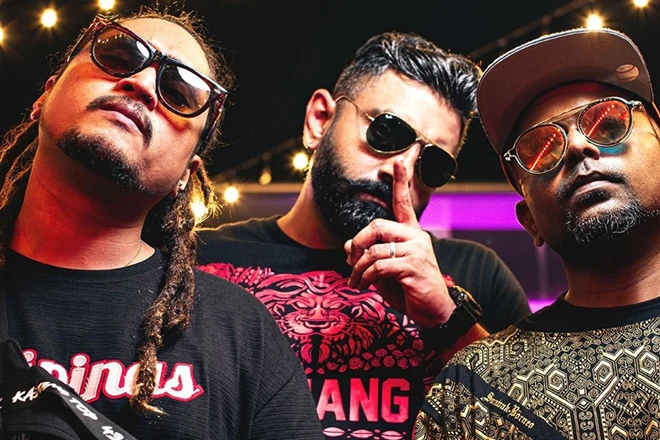Recently at ComplexCon Hong Kong, LiFTED ran into one of China’s biggest Hip Hop OG influencers Wes Chen. Wes was in town to spin records at the convention, and we caught his lit prime-time set of everything from Hip Hop to Drum & Bass. For those who aren’t familiar, Wes was born and raised in Los Angeles but has been holding it down in Beijing and Shanghai since 2000, and he has unconventionally become one of the most influential Hip Hop personalities in China. He founded and is the host of China’s first Hip Hop radio show, The Park. Wes was doing it before the Rap of China and will continue to bring the freshness the only way he knows how to – on the decks. We caught up with him for a quick LiFTED 5.
Yo, Wes! Great to sit down with you. Thanks for talking to LiFTED!
Thank you. It’s always nice to get lifted.
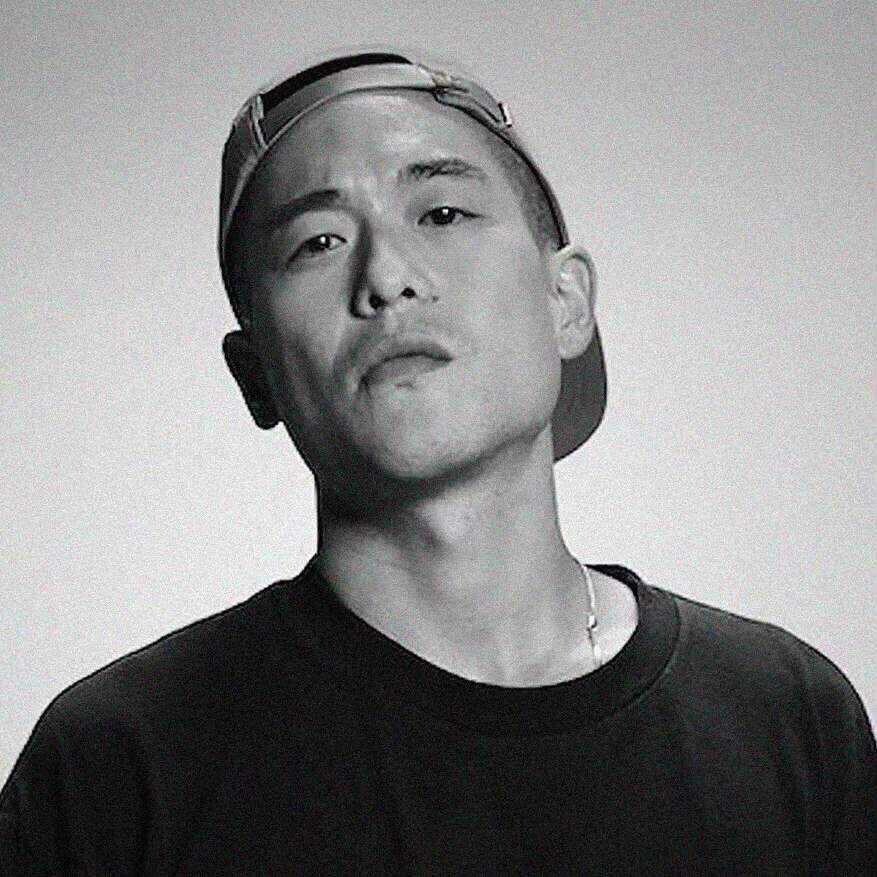
You’re originally from LA, right? The Cali Hip Hop scene was so rich in the 90s, what was it about the culture that influenced you the most growing up?
Born and raised in LA during the 80s and 90s, I had the opportunity to witness the evolution of the culture, from being an underground thing to becoming mainstream in the 2000s. Digging for music during the pre-internet era, especially for a relatively underground genre, was something that the new generation will never experience. I was on the West Coast, but listened to Hip Hop from every region, and you could say at that time, the music was much more diverse. Again, I think it has to do with the fact that there was no internet and algorithms back then. Hip Hop artists in every region were doing their thing without as much outside influence from the internet, and worrying about numbers and social media, so the music they made was more creative and unique. There was a distinct New York sound, just as there was a West Coast sound Even the Bay Area and LA had a different vibe, and that’s not to mention the Midwest and South. I think discovering something so new that had so many different facets is what drew me to it. All the different forms of expression, including the breaking and graffiti aspects had me hooked. Also, being able to discover older music through the samples being used, while also finding new artists created this endless rabbit hole to go down and a community to find like-minded people.
You moved to China in 2000, what was the Hip Hop scene like there in those days?
It was nearly non-existent. Luckily, I was in Beijing at the time which had a budding scene. There was commercial Hip Hop from the West being played in the larger clubs, but the local scene was just getting started. But then I met members of the group Yintsang [隐藏] at a small bar, where the DJ was playing more underground tracks from the likes of A Tribe Called Quest, Gangstarr, Tha Liks, Boot Camp Clique, and more. That’s when I discovered that there were real Hip Hop heads in China. One of the key members of the group, MC Webber, along with other friends from the breaking, DJ, and skating communities soon started a monthly event called Section 6 that paid a real tribute to all aspects of the culture. I started my radio show in 2006, and would also DJ at Section 6 often, so I would put on some of the artists that were performing there. Until then, no one had played local Hip Hop on the airwaves of China. From there I started to discover artists from every region of China and put them on as well.
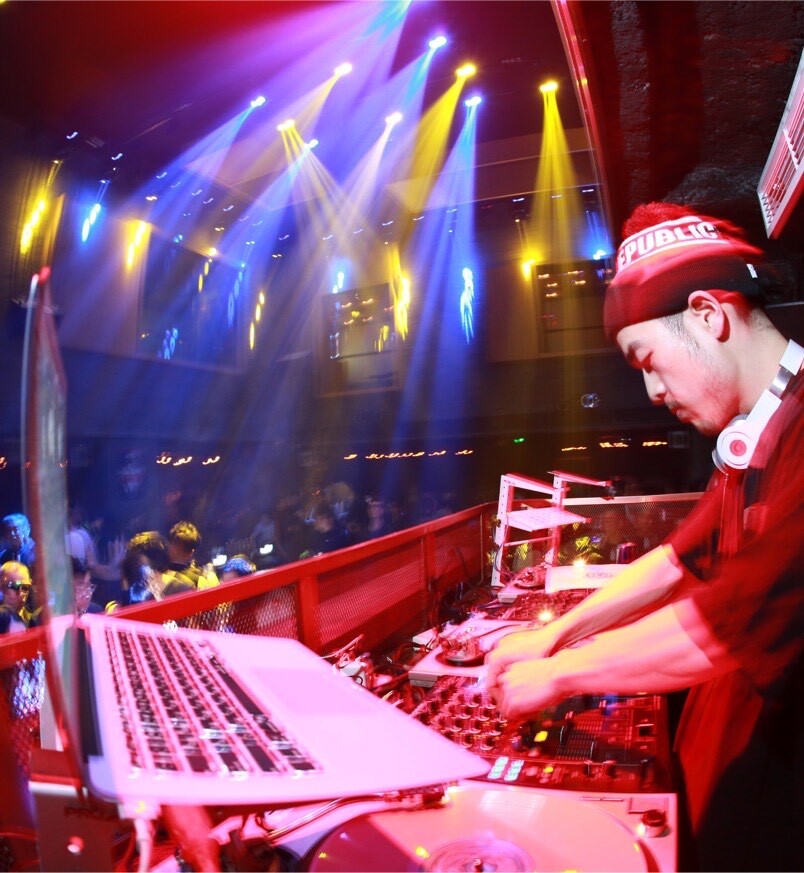
As a person of Chinese descent, but also an American, did you feel a sense of mission in bringing Hip Hop culture and sounds to China?
This was never my mission. I was, and still am a person that appreciates the culture that I grew up on. Just like it was a bridge to find like-minded people when I was a youth in Cali, it had the same effect when I got to China. As someone who appreciated the discovery of something new and different at the time, I wanted to share that with other people, especially the ones who had not gone beyond the commercial parts of the music and culture.
When did you start The Park radio show, and how did that come about?
I started the show in 2006, and like I said, it was never my mission to educate. A friend who was also a student at the time arrived in Beijing, had begun to pursue a career as a Pop artist, and had gained some recognition. The radio station initially hit him up to do a show, and he thought Hip Hop would be a good idea, so he reached out to me because he knew I was a big Hip Hop head. We ended up parting ways around 2016 because of personal differences on the direction of the show, but I still do the show to this day. It was and still is a labor of love. I’ve put on a lot of artists, some of whom are big-time celebs in China now, and I will continue to put on good talent that deserves to be seen or heard.
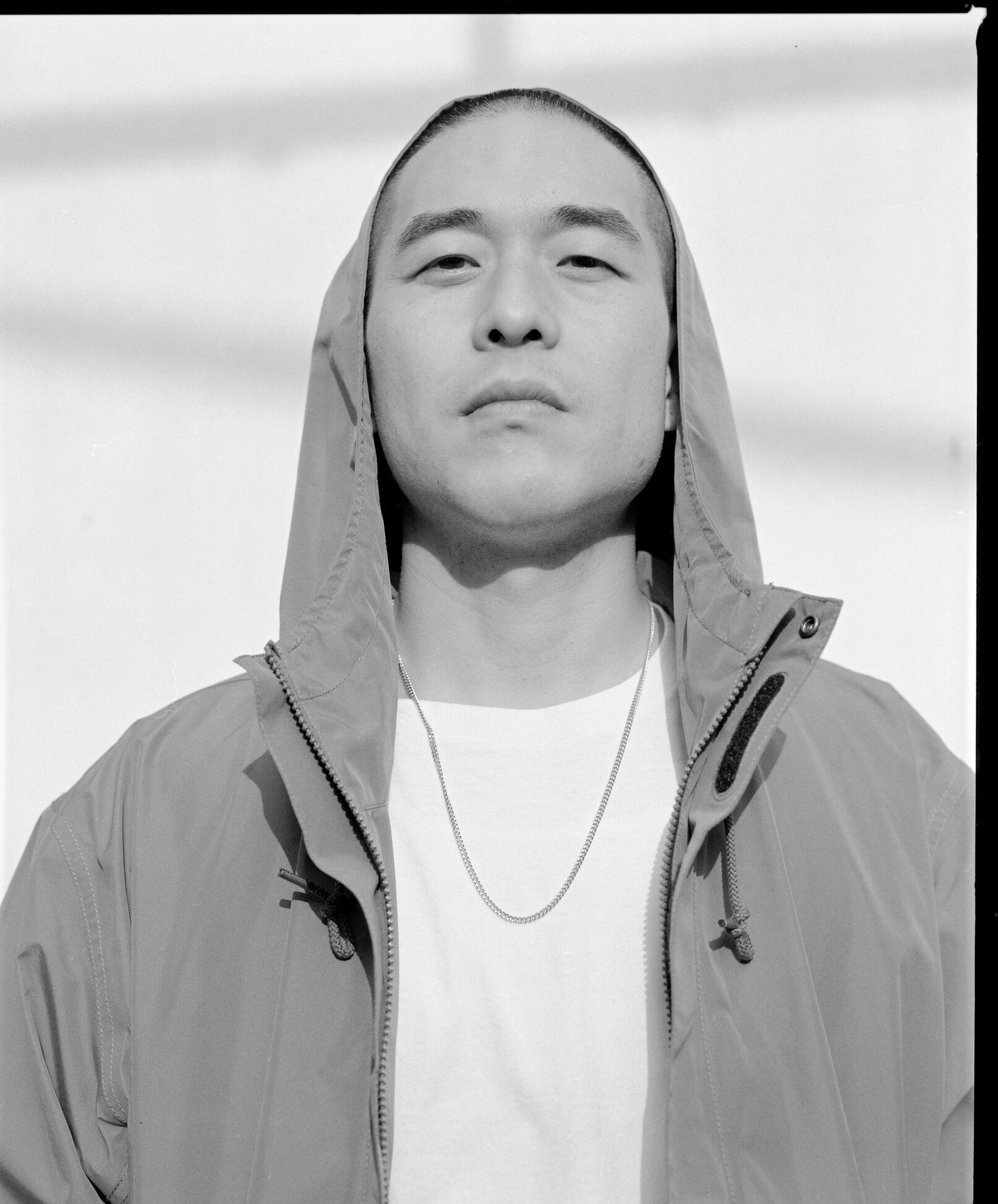
Since the Rap of China phenomenon in 2017, how has the scene changed in China for good and bad?
There are both good and bad things that have come from that show. The good obviously is that the market is bigger and there are more commercial opportunities for artists. The bad, however, is a much longer and more nuanced list of things. For one, that show didn’t really represent what the culture is about, so there is a very misguided stereotype of what Hip Hop is here. Those types of shows in general, whether they are about singing, dancing, or rapping – are more about idol culture than anything. That show itself was a complete rip-off of Show Me the Money from Korea, so from the jump you can see that originality is not a top priority to them.
Much like how in Korea there are those idol schools that take kids and manufacture them into idols for future commercial use, these shows are pretty much the same thing but turned into entertainment. I personally have never been a fan of idol culture and have tried to encourage my listeners to think for themselves. I think idol culture is the opposite of creativity. To me, real Hip Hop is not about that. Unfortunately, you’re kind of seeing that happening everywhere since Rap has become mainstream, but it feels 10 times worse here. Maybe the worst thing about the show is that so many aspiring rappers feel like going on that show is the only way to get ahead, and by doing so will sacrifice their art and integrity. If only more importance was put on artistry and individuality than celebrity, from both the music fans and artists themselves, then we might have a more vibrant Hip Hop culture.





